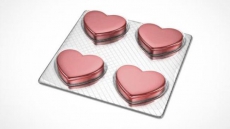CHICAGO — Long-acting but reversible methods of birth control are becoming increasingly popular among U.S. women, with IUDs redesigned after safety scares and the development of under-the-skin hormone implants, a government report shows.
Birth control pills remain the most popular contraceptive method nationwide, but intrauterine devices and implants are more effective at preventing pregnancy and they last for several years.
Highlights of the new report, released Tuesday by the Centers for Disease Control and Prevention:
RISING USE
National surveys show 7 per cent of U.S. reproductive-aged women used long-acting contraceptives in 2011-13, up from less than 2 per cent in 2002. The most popular are IUDs, T-shaped devices containing hormones or copper that are inserted into the womb. They can work for up to about 10 years. Implants are matchstick-size plastic rods containing hormones that are inserted beneath the skin of the upper arm. They last about three years. Both types can cost hundreds of dollars but should be covered with no co-pays by most insurance plans under contraception mandates of the Affordable Care Act.
Long-acting contraceptives were used most by women in their mid-20s and 30s — 11 per cent or more than double the rate in younger or older women. They were also more popular with women who had at least one child, versus those who'd never given birth. Use increased among whites, blacks and Hispanics from 2006-2013.
HISTORY
IUD use dropped sharply nationwide after serious complications linked with a now-defunct brand in the 1970s, but other brands have been redesigned. Hormonal implants using several small rods were introduced in the United States in the 1990s; single-rod implants became available about 10 years later.
The American College of Obstetricians and Gynecologists recommended IUDs and implants as the most effective forms of reversible birth control in 2011 and called them safe for most women. Both long-acting methods are nearly 100 per cent effective, with lower failure rates than birth control pills, patches and injections.
The brief report suggestsnewer IUD designs and availabilityof implants that last as long as some IUDsmay make these methods appealing for more women, though it doesn't include specificreasons for the rise in popularity.
OTHER METHODS
Among the nearly 61 million U.S. women aged 15-44, almost two-thirds used some form of contraception in 2011-13, an earlier CDC report found. Pills were the most common, used by 16 per cent. About 15 per cent chose sterilization but its popularity declined during those years. About 9 per cent chose male condoms, which unlike pills and long-acting forms, protect against sexually transmitted diseases.





